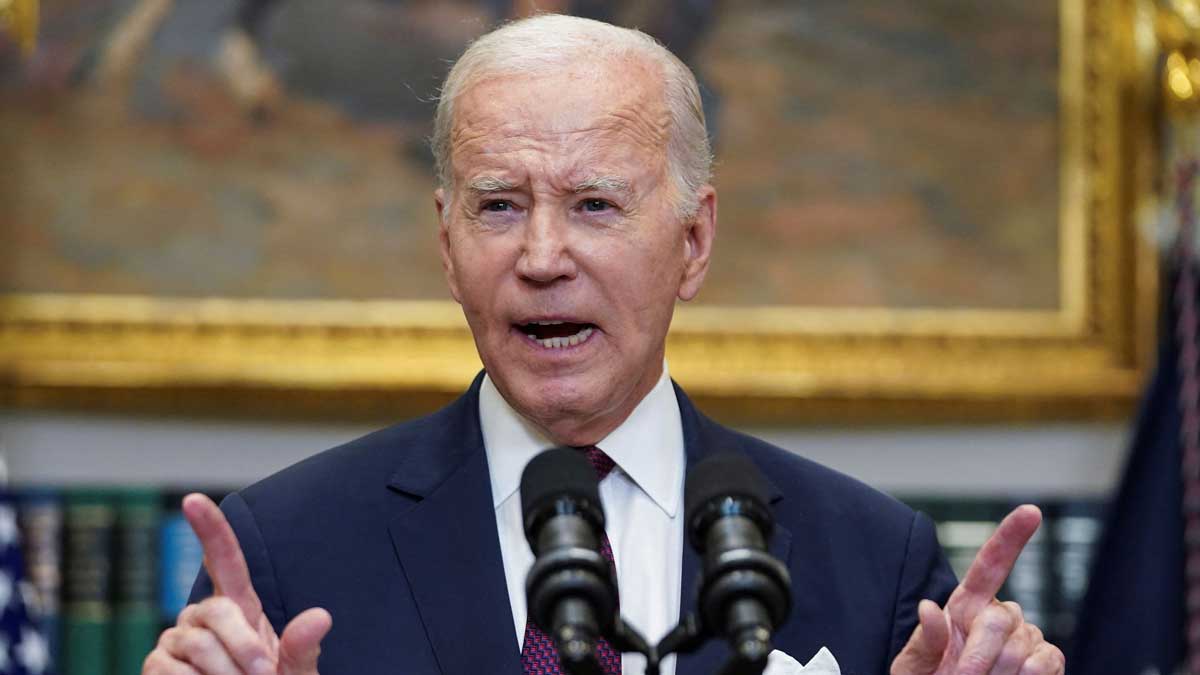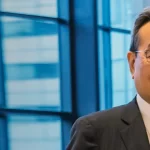- Home
- Billionaires
- Investing Newsletters
- 193CC 1000
- Article Layout 2
- Article Layout 3
- Article Layout 4
- Article Layout 5
- Article Layout 6
- Article Layout 7
- Article Layout 8
- Article Layout 9
- Article Layout 10
- Article Layout 11
- Article Layout 12
- Article Layout 13
- Article Layout 14
- Article Sidebar
- Post Format
- pages
- Archive Layouts
- Post Gallery
- Post Video Background
- Post Review
- Sponsored Post
- Leadership
- Business
- Money
- Small Business
- Innovation
- Shop
Recent Posts
Biden Weighs Supreme Court Term Limits and Ethics Reforms

President Joe Biden is contemplating a significant overhaul of the Supreme Court, including the introduction of term limits for justices and the establishment of an enforceable ethics code. This potential endorsement marks a notable shift from Biden’s historically cautious approach to Supreme Court reforms. According to reports citing anonymous sources, Biden’s consideration comes in response to mounting ethical concerns surrounding several justices. The idea of imposing term limits and stringent ethical guidelines represents a departure from traditional lifetime appointments and could reshape the judiciary’s future significantly.
During a recent call with the Congressional Progressive Caucus, Biden indicated he is on the verge of launching a major initiative aimed at limiting the powers of the Supreme Court. He acknowledged the necessity of congressional cooperation, hinting that legislative approval would be required to implement such profound changes. The Washington Post further reported that Biden is contemplating advocating for a constitutional amendment to abolish broad presidential immunity. This proposed amendment aims to counter a recent Supreme Court ruling that granted former President Donald Trump immunity for actions taken while in office, highlighting Biden’s intent to hold presidents more accountable for their actions.
The Supreme Court has faced increased scrutiny in recent months, particularly after revelations that Justice Clarence Thomas failed to disclose numerous luxury vacations funded by real estate mogul Harlan Crow. Justice Samuel Alito has also been under fire after flags associated with the “Stop the Steal” movement were reportedly flown at his residences. These incidents have fueled calls for the Supreme Court to adopt a more robust ethics code. Although an ethics code was implemented last year following Biden’s assertion that there was no constitutional barrier to such a measure, critics argue that it lacks effective enforcement mechanisms to address violations by justices.
Biden’s criticism of the Supreme Court has intensified, particularly concerning its ruling on presidential immunity. He lambasted the decision, arguing that it undermines the foundational constitutional principle that no individual is above the law. In a recent interview with NBC, Biden expressed his belief that the current justices are increasingly disconnected from the intentions of the nation’s founders. This sentiment reflects a growing frustration within the administration regarding the court’s recent rulings and ethical lapses.
Former President Donald Trump, in response to these developments, took to his Truth Social platform to decry what he characterized as an “illegal and unconstitutional attack” by the “Radical Left Democrats” on the Supreme Court. Trump claimed that these efforts are driven by the failure of what he termed “unlawful witch hunts” and called for a defense of the judiciary’s independence. His remarks underscore the contentious and deeply polarized nature of the debate surrounding Supreme Court reforms.
In a related development, Representative Alexandria Ocasio-Cortez and several other Democrats recently filed articles of impeachment against Justices Clarence Thomas and Samuel Alito. The impeachment articles accuse the justices of committing high crimes and misdemeanors by failing to disclose gifts and recuse themselves from cases where they had apparent conflicts of interest. Although the impeachment efforts are unlikely to succeed, they underscore the persistent ethical concerns and the high stakes involved in the push for Supreme Court reform.
Biden’s engagement with judicial matters dates back to his tenure in the U.S. Senate, where he served on the Senate Committee on the Judiciary. He became the ranking member in 1981 and subsequently the chairman from 1987 to 1995. His extensive experience with the judiciary informs his current approach to Supreme Court reforms, underscoring the depth of his commitment to addressing ethical issues within the nation’s highest court.
Recent Posts
Categories
- 193 Countries Consortium Partner1
- 193cc Digital Assets2
- 5G1
- Aerospace & Defense48
- AI37
- Arts3
- Banking & Insurance11
- Big Data3
- Billionaires1,261
- Boats & Planes1
- Business332
- Careers13
- Cars & Bikes79
- CEO Network1
- CFO Network17
- CHRO Network1
- CIO Network1
- Cloud10
- CMO Network18
- Commercial Real Estate7
- Consultant1
- Consumer Tech194
- CxO1
- Cybersecurity73
- Dining1
- Diversity, Equity & Inclusion4
- Education7
- Energy8
- Enterprise Tech29
- Events11
- Fintech1
- Food & Drink2
- Franchises1
- Freelance1
- Future Of Work2
- Games149
- GIG1
- Healthcare79
- Hollywood & Entertainment203
- Houses1
- India’s 1000 Richest1
- Innovation46
- Investing2
- Investing Newsletters4
- Leadership65
- Lifestyle11
- Manufacturing1
- Markets20
- Media327
- Mobile phone1
- Money13
- Personal Finance2
- Policy569
- Real Estate1
- Research6
- Retail1
- Retirement1
- Small Business1
- SportsMoney42
- Style & Beauty1
- Success Income1
- Taxes2
- Travel10
- Uncategorized13
- Vices1
- Watches & Jewelry2
- world's billionaires1,230
- Worlds Richest Self-Made Women2
Related Articles
South Korea Plane Crash: A Tragic Loss and Global Mourning
The tragic plane crash at South Korea’s Muan International Airport on Sunday...
By 193cc Agency CouncilDecember 30, 2024H-1B Visa Debate Splits Trump Allies and Silicon Valley
The debate over H-1B visas has once again become a contentious issue,...
By 193cc Agency CouncilDecember 28, 2024Trump Moves $4B Stake in Truth Social Parent, Stock Drops 6%
Donald Trump recently transferred his 57% stake in Trump Media & Technology...
By 193cc Agency CouncilDecember 20, 2024House Rejects Trump-Backed Funding Bill, Shutdown Looms
The U.S. House of Representatives rejected a new government funding bill on...
By 193cc Agency CouncilDecember 20, 2024















Leave a comment